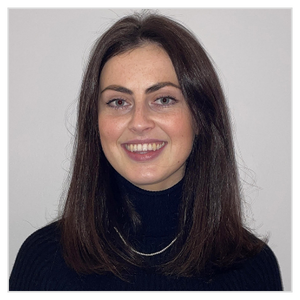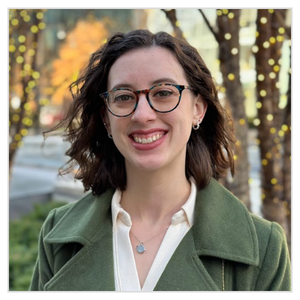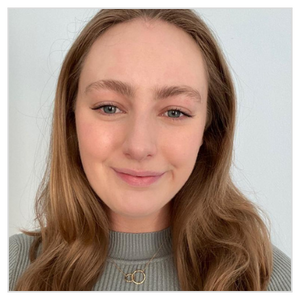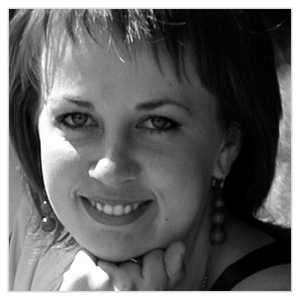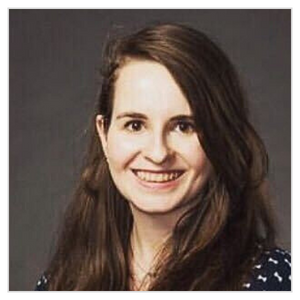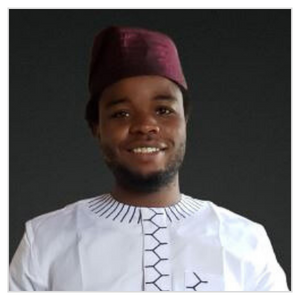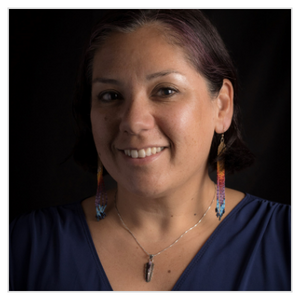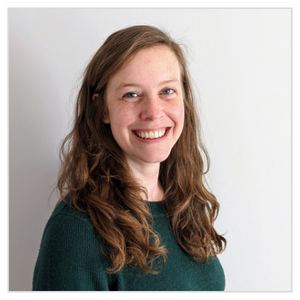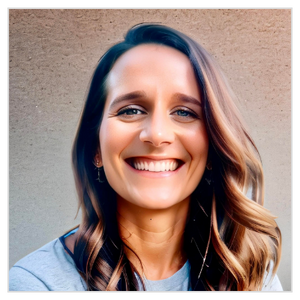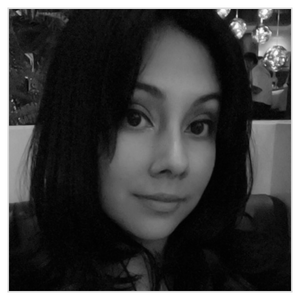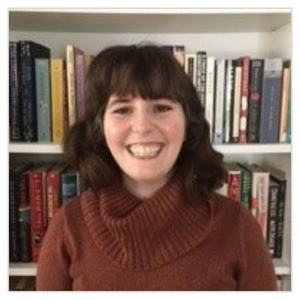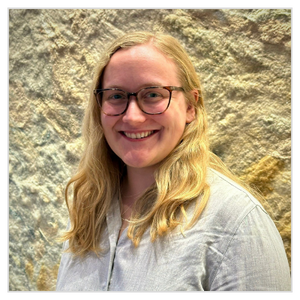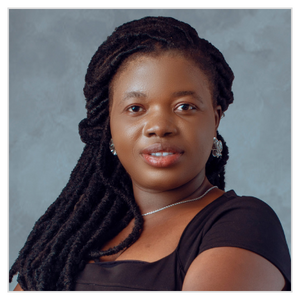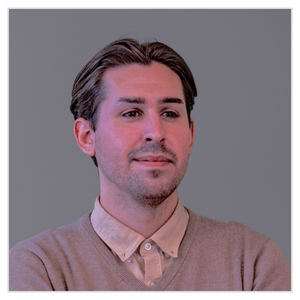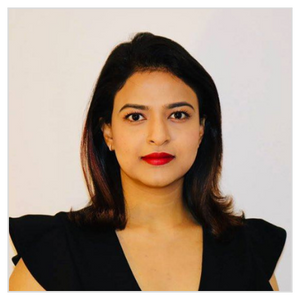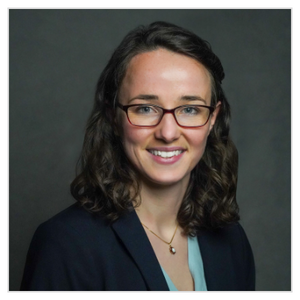This highly competitive award offers students and early-career professionals a wide range of career development, training, and networking opportunities in the scholarly publishing industry, including matching Fellows with an industry expert Mentor and working in small groups to create a poster presentation for SSP’s 46th Annual Meeting, happening May 29-31, 2024.
Congratulations to our 2024 Fellowship winners!
We will begin taking applications for the 2025 Fellows in late 2024. Read more about Application Requirements, Benefits, and Responsibilities, or learn more about our 2024 Fellows. If you have questions about the fellowship program, please contact us at info@sspnet.org.
Supporting the SSP Fellowship ProgramThe Fellowship Program is made possible by the Generations Fund. Generous donations from members and industry endow the Generations Fund to allow SSP the resources, in perpetuity, to continue this program. The Career Development Committee, on behalf of SSP, sincerely thanks the donors who make this innovative and supportive program possible. Click here to learn more, or make a gift to help us reach our $500,000 goal. |
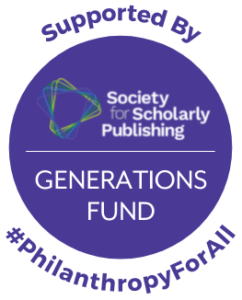 |
Application Requirements
Student Fellowship applicant requirements: must be current students in a dedicated publishing or library and information science program or in another program in which they take publishing, librarianship, or information science courses.
Early-Career Fellowship applicant requirements: must be in their first four years of work in the publishing and information profession.
Fellows will be selected based on their responses to the questions below. Please include your résumé with your application.
- Please describe why you merit this Fellowship. Which of your work/educational experiences and qualifications are especially relevant?
- In addition to communicating what you’ve learned by attending SSP’s Annual Meeting to your colleagues/fellow students, how will you practically incorporate this new knowledge into your work/educational life?
- The scholarly communications field is in a state of flux. Discuss how this industry could or should evolve over the next five years to meet the changing needs of scholars and researchers.
Fellowship Benefits
SSP Fellows will receive the following:
- Complimentary SSP membership;
- Discounted SSP membership for two additional years;
- Assignment of an industry expert Mentor, with opportunities to communicate via e-mail and Zoom throughout the year and at the Annual Meeting;
- Facilitated quarterly teleconferences with other Fellowship recipients with current and past SSP presidents and board members on developing leadership skills and paths for career growth;
- Free registration to the Annual Meeting;
- Fellowship meet-up and networking event at the Annual Meeting for current and former Fellows;
- Travel stipend to assist with expenses incurred to attend the meeting (applications from beyond North America are especially encouraged);
- Free registration to SSP webinars organized throughout the year;
- Free registration to one regional networking event organized throughout the year;
- Opportunity to participate in an SSP committee.
Fellowship Responsibilities
All SSP Fellows will be ambassadors of the Society and are expected to undertake the following as part of their Fellowship:
- Submit a written report after attending the SSP Annual Meeting describing experiences and learning outcomes. Note: This report may be used as the basis for an article on The Scholarly Kitchen.
- Submit a poster to the Annual Meeting for the benefit of other early-career professionals and students studying publishing and library and information science;
- Contribute to SSP’s Member Exchange as a community ambassador;
- Participate in an annual Fellowship survey to provide feedback on the program;
- Complete any feedback surveys for seminars, webinars, and networking events attended throughout the year;
- Communicate and engage with their assigned Mentor throughout the year;
- Give back to SSP by joining a committee at the end of the Fellowship.
About Our 2024 Fellows
Alice Burns is the Journals Marketing Executive at Liverpool University Press, and manages their collections of Archiving, History, Science Fiction, Literature, Education and Cultural Studies journals. She is also an AHRC-Funded PhD student at the University of Liverpool, studying the archives of Beatrix Potter and Anne Lister.
Elizabeth (Ellie) Brown (she/her) is from Boston, MA and currently resides in Washington, DC. She graduated with a B.A. in History from McGill University in June 2021 before beginning her career in scholarly publishing at Proceedings of the National Academy of Sciences (PNAS). During her tenure at the journal, Ellie has been an active member of PNAS’s Committee for Diversity, Equity, and Inclusion and was honored with the 2022 Rookie Award. In her free time, Ellie enjoys reading cozy historical mysteries, practicing yoga, and embarking on new cross-stitch projects.
Emma Ferguson is a Journals Commissioning Editor for Emerald Publishing, having started at Emerald in 2021 as a Commissioning Assistant; she manages a portfolio of journals covering HR, Learning and Organization Studies. Emma first found her interest in publishing through a placement with Liverpool University Press during the final year of her undergraduate degree in English Literature, which she completed in 2020.
Irina Cojocaru is a PhD student in Library and Information Sciences at Moldova State University, focusing on evaluating the visibility of the national R&D sector. Her current areas of interest include metadata for scholarly publishing, open access, persistent identifiers, open science principles and practices. She worked in the team behind the National Bibliometric Instrument – the biggest OA library of national scientific publications. Irina is the founder of METADATA LLC, a Crossref sponsoring organization in the Republic of Moldova, providing support to almost 40 national publishers with content registration and increasing national research visibility.
Jennifer Tucker has a background in academic research, with a PhD focus on potential novel interventions in two toxicological models of Parkinson’s disease and further experience investigating imprinted genes and lncRNAs in breast and colon cancer. She joined the PLOS ONE editorial team as an Associate Editor in August 2023 following two years at Frontiers working as a Journal Specialist in Frontiers in Cell and Developmental Biology. She is passionate about open, equitable science and publishing practices.
Jesubukade Emmanuel Ajakaye is a dedicated academic librarian currently serving at the Federal Polytechnic Ayede in Oyo State, Nigeria. He actively contributes to the accessibility of information resources for students and researchers. Using advanced IT tools, he strives to break barriers and provide inclusive access to scholarly content, especially for underserved populations irrespective of age or socioeconomic status. His commitment extends beyond the academic sphere as he endeavours to make scholarly research widely available to the public through various mediums. Jesubukade stands at the intersection of technology, information access, and social impact, embodying a passion for knowledge dissemination and community empowerment.
Kelley Klor is a citizen of Cherokee Nation, and a recent graduate from the Library and Information Science program at the University of Missouri. Kelley’s interest is in archival education and cross-cultural communication to meet the cultural preservation needs of tribal institutions. Kelley works at the Association of Tribal Archives, Libraries, and Museums, and is an evaluator for the Indigenizing Archival Training program, a Mellon-funded holistic pilot program managed by the Society of American Archivists. Kelley hopes to begin working toward her Ph.D. in Information Science in Fall 2024.
Lucie Van Emmenis received her PhD in Molecular Cell Biology from University College London, UK, before completing a postdoc at Weill Cornell Medicine, New York. She joined the Journal of Experimental Medicine (JEM) as a Scientific Editor in 2022. As an editor, Lucie handles manuscripts from a variety of disciplines, attends international conferences, and performs author outreach for the journal. Lucie is also in charge of JEM People & Ideas interviews, and in 2023 organized the JEM “Women in STEM: Becoming Independent” Viewpoint series.
Lučka Bibic grew up in Slovenia and graduated from the University of Copenhagen (Denmark) as a pharmaceutical scientist. After spending a year in Sydney (Australia), she then focused on researching spider venoms and chronic pain at the University of East Anglia (U.K.) for her doctoral study. While pursuing her Ph.D. in chemical sciences, she also worked at the University of Cambridge and BBC5Live as a science communicator, developed a virtual reality game on the idea of her Ph.D., led the winning team at the national entrepreneurship biotechnology competition in the U.K., and spoke at TEDx. Lučka’s passion for science communication and education led her into digital product management with a particular focus on content performance. She now enjoys her role as the Head of Article Pipeline Management at Springer Nature and helps to make a difference for academics out there. In her free time, Lučka runs trails, enjoys being a plant mom and writes about science.
Maribel Gomez is a diligent graduate student who recently completed her Master’s in Publishing at The George Washington University. Drawing upon a decade-long background in education, Maribel’s passion extends beyond the classroom, reflecting a steadfast commitment to amplifying underrepresented voices and championing diversity, equity, and inclusion. At the core of Maribel’s professional aspirations lies a profound interest in intellectual property and copyright clearances. With a keen focus on becoming a proficient expert in this domain, she seamlessly blends extensive academic coursework with hands-on experience. Maribel’s proactive engagement in the scholarly publishing sector not only highlights her dedication but also positions her as a promising advocate and professional poised to make meaningful contributions to the field.
Melissa Chim is the first Scholarly Communications Librarian at Excelsior University where she is involved in managing the university’s scholarly publishing platform and institutional repository. She holds an MLIS from St. John’s University and an MA in History from Queen Mary, the University of London. She was a SPARC Open Education Leadership Fellow for their 2022-23 cohort. She co-authored the OER textbook entitled Living Archives: A History of the Center for Christian Spirituality, and is currently co-authoring another textbook on information literacy.
Natalie Pendergast works at the University of Pennsylvania Libraries as the Monograph Acquisitions Librarian. She currently focuses on large, specialized print purchases from local and other specialty vendors. Her favorite collections to collaborate on are Latin American art books, and the Penn Sexuality collection. Before taking on this role, Natalie interned at Penn, working at the Penn Veterinary Library, and the information desk in Van Pelt Library. She previously worked as a graduate admissions coordinator at Thomas Jefferson University. She has an MIS in Library and Information Science from Drexel University, and a BA in English from Hollins University.
Opeyemi Rachael Oboh is a first-year graduate student in the School of Information Studies (SOIS) at the University of Wisconsin, Milwaukee, USA; where she also serves as a Graduate Teaching Assistant. Having obtained her first and second degrees in Library and Information Studies with first-class honors and a PhD distinction from the University of Ibadan, Nigeria, Opeyemi embarked on her doctoral journey after working as a librarian and later transitioning to becoming a member of the academia. Her career trajectory is marked by a consistent and outstanding record of intellectual prowess, a relentless pursuit of knowledge, and a remarkable academic journey.
Pablo Adrian Martin Campos is a molecular biologist turned publishing professional. I work on publishing operations, ensuring a smooth, high-quality review process. When I made my move from working in oncological clinical trials to scholarly publishing, I made sure I took every opportunity I had to further engage with the industry professionals and stayed on top of the current hot topics, aiming to provide a fresh point of view that will help us grow towards a publishing model that puts researchers at the center.
Pavithra Naullage is an assistant managing editor in global editorial strategy, Publications Division at the American Chemical Society. A computational chemist by training, she oversees the strategic growth and day-to-day operations of the computational chemistry portfolio of journals in her current role. Pavithra received her PhD in computational chemistry from the University of Utah and her post-doctorate from UC Berkeley. She is passionate about disseminating complex research concepts to different audiences.
Tammy Brodie has worked as an editorial assistant for the past three years in the publications department at the American Association for Thoracic Surgery (AATS). Her interests and experience include digital publishing, peer review, open access, and working with underrepresented authors. In 2020, she graduated from Emerson College with a Master’s in publishing. She currently lives on the North Shore of Boston and serves as a board member for Salem Sound Coastwatch. When she is not editing, she is often running on the beach and writing poetry.

